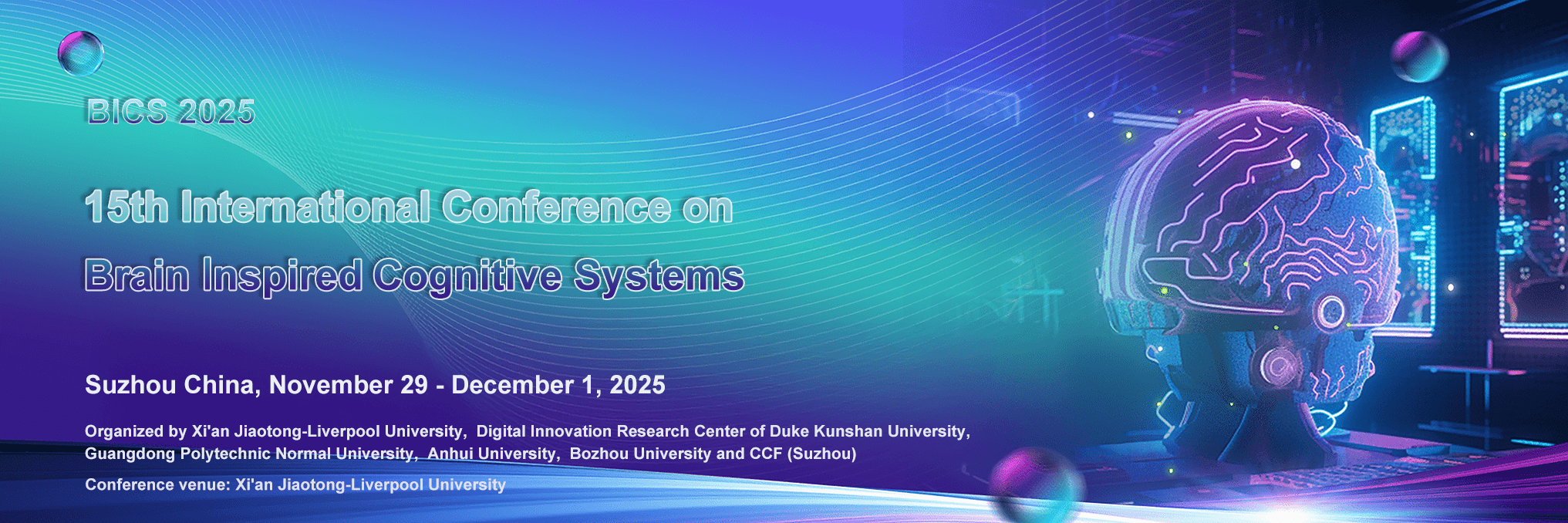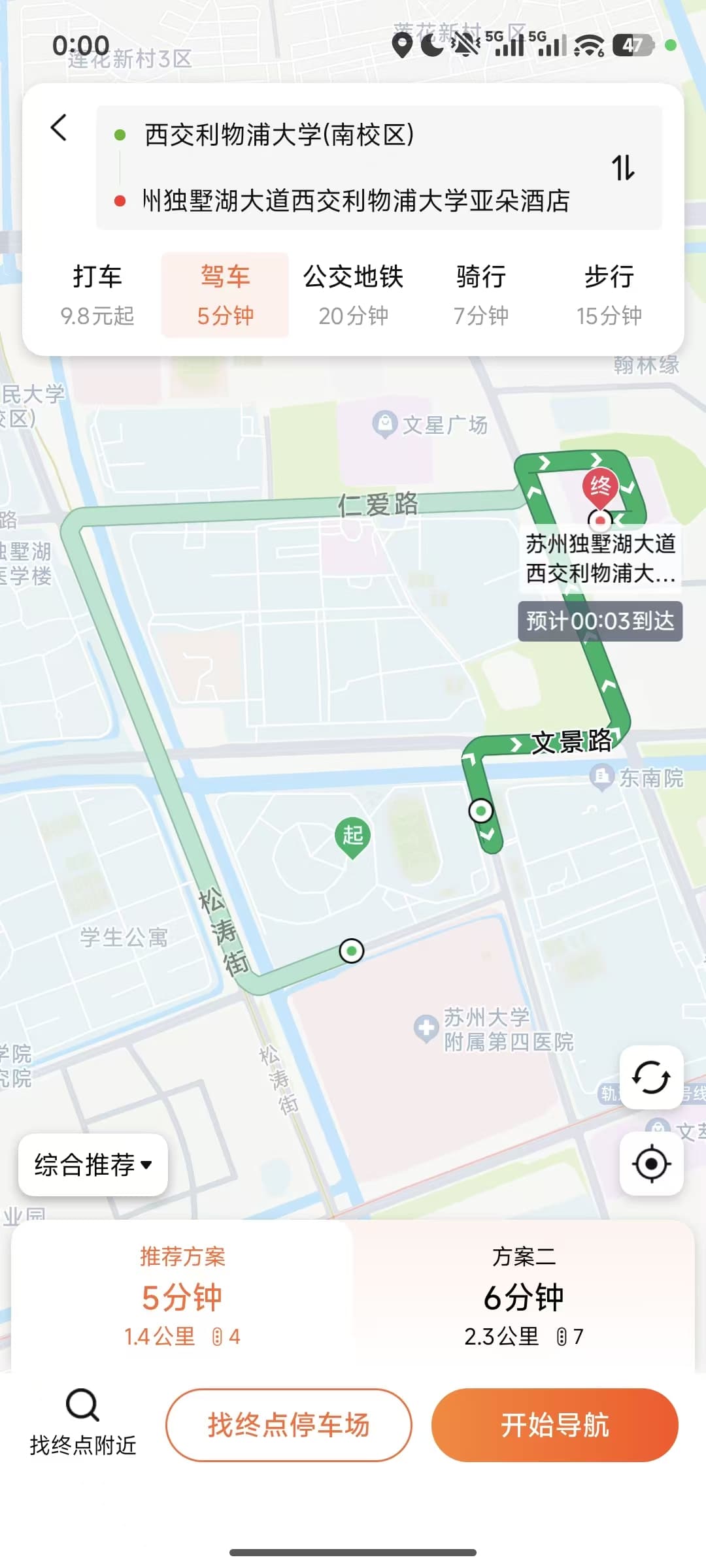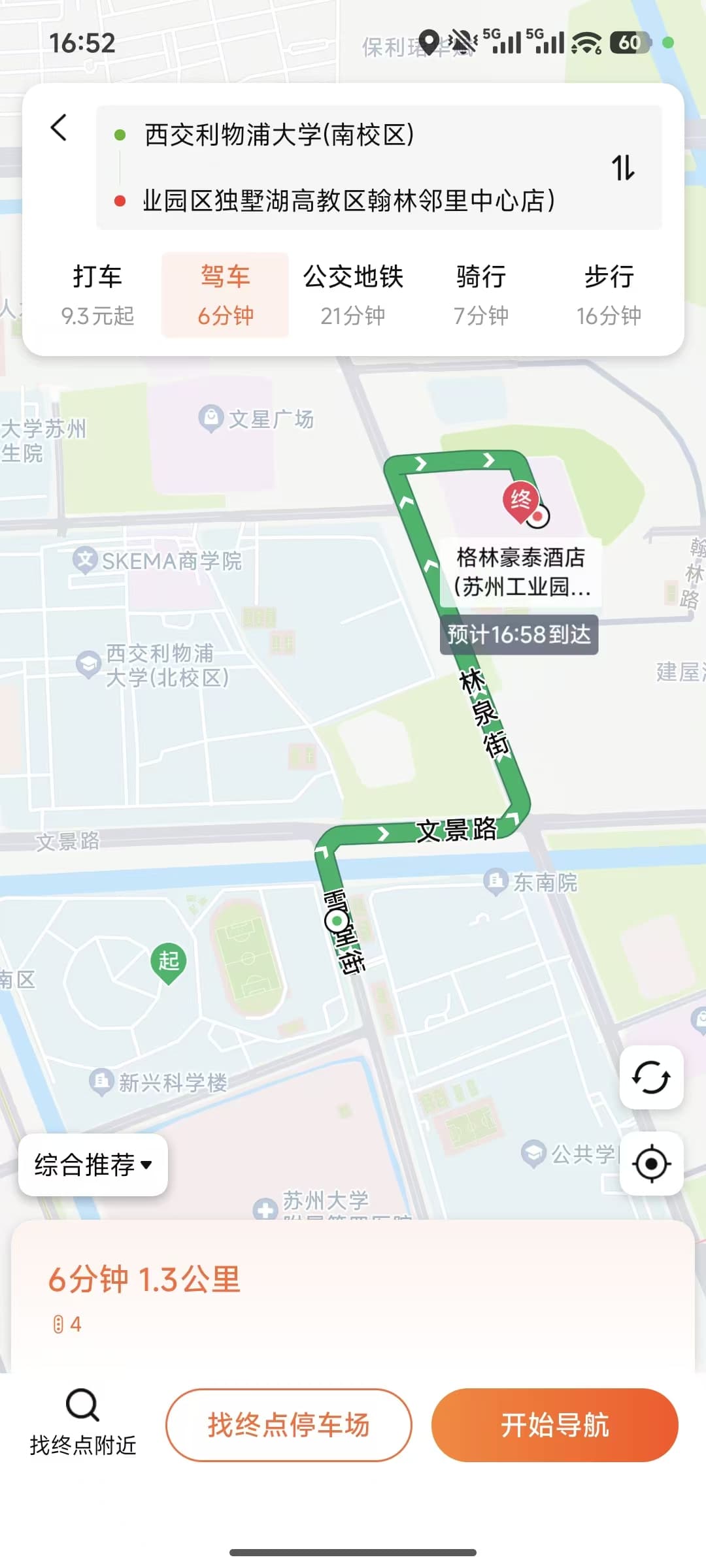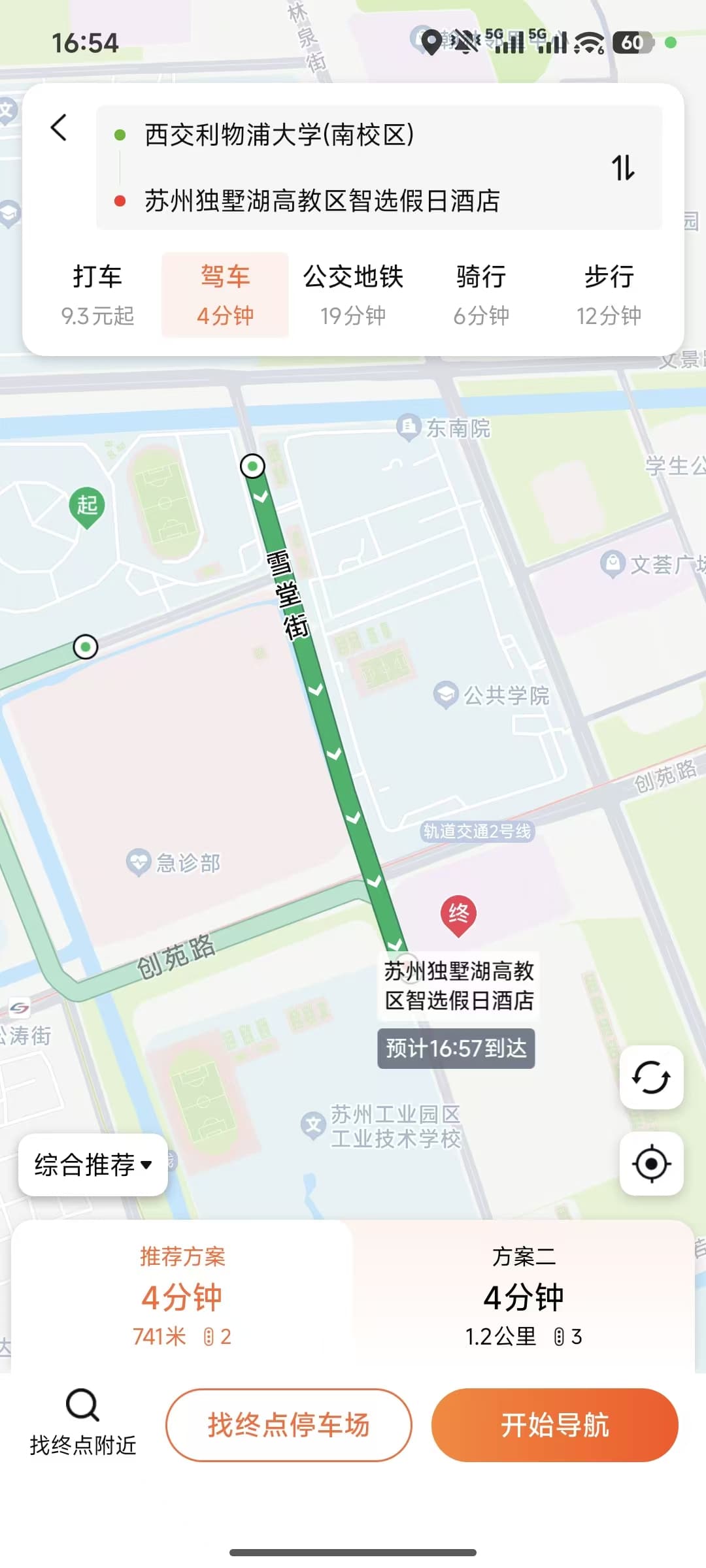INTRODUCTION TO BICS2025
BICS 2025 aims to provide a high-level international forum for scientists, engineers, and educators to present the state of the art of brain inspired cognitive systems research and applications in diverse fields. The conference will feature plenary lectures given by world renowned scholars, regular sessions with broad coverage, and some special sessions focusing on popular and timely topics.
All registered and presented BICS papers will be published in Springer LNAl/LNCS proceedings and indexed by El Compendex. Selected papers will be published in special issues of SCI journals, such as Cognitive Computation, Neurocomputing et al.
KEYNOTE TALKS
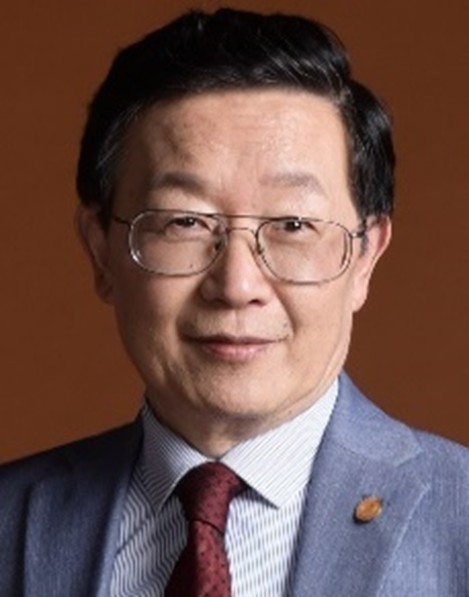
Abstract
It is recognized that the theoretical foundations of Brain-Inspired Cognitive Systems (BICS) are grounded in contemporary Intelligent Science (IS) and Cognitive Science, underpinned by Intelligent Mathematics (IM). The first axiom of BICS may therefore be formally stated as: "the theoretical foundations of AI are IS; those of IS are IM," or simply AI_IS_IM. The general axioms of IS and Autonomous AI (AI*) further reveal how current AI technologies and BICS will evolve toward rigorous and training-free intelligence-generation methodologies. This keynote will present IM-driven theories and systems for AI*, along with their representative applications, within a rigorous and practical framework. Foundational principles of brain and cognitive sciences supported by modern IS and IM will be introduced, followed by real-world case studies demonstrating how complex real-time intelligent and BICS systems can be formally, coherently, and trustworthily designed. Additional examples of formal BICS modeling and implementation will be discussed. The speaker expresses sincere appreciation to Prof. Kaizhu Hwang and colleagues for their dedication to advancing this key transdisciplinary field toward next-generation intelligent science and brain-inspired cognitive systems.
Prof. Yingxu Wang, FIEEE, is a distinguished chair professor specializing in intelligence science, intelligent mathematics, brain science, autonomous systems, and software science. He is the founding President of the International Institute of Cognitive Informatics and Cognitive Computing (I2CICC) and holds fellowships in BCS, I2CICC, AAIA, and WIF, as well as P.Eng. status in Canada. He has served as visiting professor at leading institutions including Oxford University, Stanford University, UC Berkeley, MIT, and Tsinghua University. He earned his PhD in Computer Science from Nottingham Trent University and has been a full professor since 1994.
He is founder and steering committee chair of the IEEE International Conference Series on Cognitive Informatics and Cognitive Computing (ICCI*CC) and has served as Editor-in-Chief or Associate Editor for more than ten international journals and IEEE Transactions, including EiC of IEEE SMC Letters. He serves on the Board of Governors of the IEEE SMC Society, chairs the TC-BCS on Brain-Inspired Cognitive Systems, and co-chairs the IEEE CS TC-CLS on Computational Life Science.
His pioneering research spans intelligence science, intelligent mathematics, robotics, cognitive systems, autonomous systems, software generation, neurology, formal linguistics, and the brain's DIKI (data–information–knowledge–intelligence) framework. Prof. Wang has published over 600 peer-reviewed papers and more than 40 books/proceedings, delivered over 100 keynote speeches, chaired more than 56 international conferences, and led numerous international research projects as PI. He is recognized globally for his contributions, ranking top-1 in Software Science, top-1 in Cognitive Robots, top-8 in Autonomous Systems, top-2 in Cognitive Computing, and top-1 in Knowledge Science, with an h-index of 72 and over 635,000 citations/readers on ResearchGate.

Abstract
In recent years, the field of artificial intelligence has witnessed significant advancements in multimodal foundation models and large language models. This presentation will delve into these models, elucidating their internal mechanisms and applications across diverse domains, encompassing science, medicine, robotics, and beyond. We will scrutinize the prevailing trends in multimodal models, underscoring their growing importance in comprehending and processing complex information. Additionally, we will investigate the challenges faced by these models, such as scalability, trustworthiness, and explore potential future directions for the field. By analyzing innovative approaches to address these challenges and considering the impact of emerging technologies, we endeavor to inspire further research and innovation in this rapidly evolving field.
Prof. Irwin King is a globally recognized scholar in machine intelligence, currently serving as the Pro-Vice-Chancellor (Education) and Professor at the Department of Computer Science & Engineering, The Chinese University of Hong Kong (CUHK). His extensive research interests cover trustworthy AI, machine learning, social computing, AI for education, and data mining. He is a Fellow of ACM, IEEE, INNS, AAIA, and HKIE.
Professor King has assumed numerous leadership roles in prominent conferences and societies. He was President of the International Neural Network Society (INNS), and General Co-chair for major conferences including WebConf 2020, ICONIP 2020, ACML 2015, RecSys 2013, and WSDM 2011. He has also served in leadership capacities in conferences such as WWW, NeurIPS, ICML, IJCAI, AAAI, and ICONIP. He currently serves as Vice-President of the ACM SIGWEB, Vice-President of the WebConf Steering Committee, and a board member of INNS and the Asia Pacific Neural Network Society (APNNS).
He has received numerous prestigious awards recognizing his contributions, including the 2021 INNS Dennis Gabor Award for engineering applications of neural networks, the 2020 APNNS Outstanding Achievement Award, and several Test of Time Awards from top ACM conferences such as CIKM 2019, SIGIR 2020, and WSDM 2022. During his sabbatical at AT&T Labs Research in San Francisco, he was a Visiting Professor and taught at UC Berkeley.
Professor King is Director of the Centre for Learning Innovation and Technology (ELITE), which promotes eLearning and education technology, and leads the Machine Intelligence and Social Computing (MISC) Lab focusing on machine learning and social computing research. He holds a B.Sc. in Engineering and Applied Science from Caltech, and an M.Sc. and Ph.D. in Computer Science from the University of Southern California (USC).
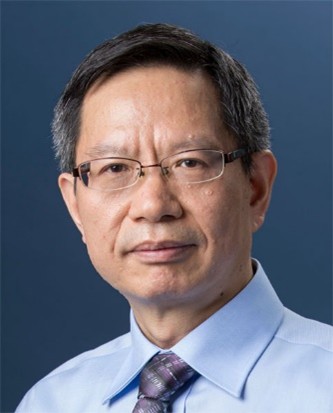
Abstract
Traditional methods of pattern classification and machine learning usually assume closed world: the input pattern falls within a fixed set of classes. However, in open world, the input pattern can be of either known or unknown classes, or be outlier. While in training, the data may emerge incrementally, and the new dataset contains samples or with known or unknown classes, either labeled or unlabeled, or be outlier. Such open-world learning scenario involves multiple challenges including out-of-distribution (OOD) detection, confidence estimation, unlabeled data exploitation, catastrophic forgetting and novel category discovery. The challenges are attacked by combining techniques such as generative modeling, regularization, knowledge distillation, and hybrid learning. This talk will outline the status of open-world pattern recognition, identify the main challenges of open-world learning and main strategies, and present some recent progress achieved in my group: open-set recognition, class-incremental learning, and generalized category discovery.
Prof. Cheng-Lin Liu (Fellow, IEEE) received the B.S. degree in Electronic Engineering from Wuhan University, Wuhan, China, in 1989, the M.E. degree in Electronic Engineering from the Beijing University of Technology, Beijing, China, in 1992, and the Ph.D. degree in Pattern Recognition and Intelligent Control from the Institute of Automation, Chinese Academy of Sciences (CAS), Beijing, China, in 1995.
He was a postdoctoral fellow with the Korea Advanced Institute of Science and Technology (KAIST) and later with the Tokyo University of Agriculture and Technology from March 1996 to March 1999. From 1999 to 2004, he was a research staff member and later a senior researcher with the Central Research Laboratory, Hitachi, Ltd., Tokyo, Japan. Since 2005, he has been a Professor with the Institute of Automation, CAS.
His research interests include pattern recognition, machine learning, document analysis and recognition. He has published more than 400 technical papers in prestigious international journals and conferences.
He serves as Associate Editor-in-Chief of the Pattern Recognition Journal and Acta Automatica Sinica, and is on the editorial board of several international and domestic journals. He is a Fellow of the IAPR, the CAA, and the CAAI.
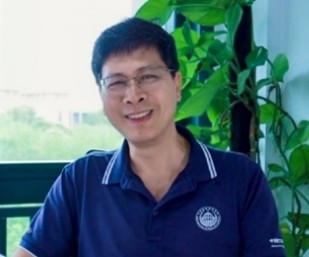
Abstract
Computer-Aided Diagnosis (CAD) has become a vital component of modern healthcare, significantly improving diagnostic accuracy and efficiency through the integration of artificial intelligence and medical image analysis. Medical image segmentation, as a fundamental task, enables precise localization and quantification of pathological regions to support clinical decision-making. In recent years, rapid advancements in Multimodal Large Language Models (MLLMs) have introduced transformative breakthroughs in assisted diagnosis, as their powerful cross-modal interpretation and reasoning capabilities allow systems to process complex medical images while simultaneously integrating heterogeneous data such as textual reports and clinical records. This enables more comprehensive and intelligent diagnostic analysis. In this presentation, I will share our team’s latest progress in intelligent medical image segmentation and demonstrate breakthrough achievements in applying multimodal large language models to pathological image analysis, which collectively advance computer-aided diagnosis technologies and provide strong technical support for precision medicine and personalized treatment strategies.
Prof. Xiangjian He is a national high-level talent, and in list of the 'World Top 2% Scientists' jointly released by Stanford University and Elsevier in the single-year database of 2022-2025 and the career-long database. He is the Director of the Computer Vision and Intelligent Perception Laboratory at the University of Nottingham Ningbo China. He served as the Director of the Computer Vision and Pattern Recognition Laboratory at the Global Big Data Technologies Centre, University of Technology Sydney, from 2011 to 2022.
He has played various chair roles for IEEE/ACM conferences including ACM MM, IEEE BigData, and IEEE ICPR. He leads a research team dedicated to research in computer vision, medical image analysis, and computer-aided healthcare based on large language models and deep learning. He has published numerous top-tier papers, including ESI highly cited papers and publications in prestigious journals and premier conferences.
He has served on the editorial boards of multiple IEEE Transactions and Elsevier journals, and is currently an Associate Editor of IEEE Transactions on Multimedia. He has held visiting or adjunct professor positions at several organizations including Shanghai Jiao Tong University, Hong Kong Polytechnic University, and the University of Georgia (USA), ETRI (Korea), University of Aizu (Japan), etc.
THE TOPICS OF INTEREST INCLUDE, BUT NOT LIMITED TO
Biologically Inspired Systems (BICS-BIS):
- Brain inspired systems
- Brain inspired vision
- Brain inspired audition and sound processing
- Brain inspired other sensory modalities
- Brain inspired motion processing
- Brain inspired robotics
- Brain inspired adaptive and control systems
- Brain inspired evolutionary systems
- Brain inspired signal processing
- Brain inspired learning
- Brain inspired pattern recognition
- Neuromorphic systems
- Others
Cognitive Neuroscience (BICS-CNS):
- Cognitive neuroscience
- Cognitive neuroscience of vision
- Cognitive neuroscience of non-vision sensory modalities
- Cognitive neuroscience of volition
- Systems neuroscience
- Attentional mechanisms
- Affective systems
- Language
- Cortical models
- Sub-cortical models
- Cerebellar models
- Neural correlates
- Others
Models of Consciousness (BICS-MoC):
- World awareness
- Self-awareness
- Global workspace theory
- Imagination
- Qualia models
- Virtual machine approaches
- Formal models for consciousness
- Control theoretical models
- Developmental/Infant models
- Will and volition
- Emotion and affect
- Philosophical implications
- Neurophysiological grounding
- Enactive approaches
- Heterophenomenology
- Analyitic/Synthetic phenomenology
- Others
Neural Computation (BICS-NC):
- Neuro-computational systems
- Hybrid neural systems
- Neural learning
- Neural control systems
- Neural signal processing
- Architectures of neural computation
- Neural devices
- Neural perception and pattern classifiers
- Neuro-fuzzy systems
- Evolutionary neural networks
- Biological neural network models
- Applications
- Others
IMPORTANT DATES
Paper submission and notification will be on a rolling base. Paper notification will not be later by 21 Sep in the 1st round and 07 Nov in the 2nd round.
| Event | 1st Round | 2nd Round |
|---|---|---|
| Submission Deadline | 01/09/2025 | 17/10/2025 |
| Notification of Acceptance | 21/09/2025 | 07/11/2025 |
| Camera-ready Papers Due | 15/11/2025 | |
| Conference Dates | November 29 - December 1, 2025 | |
All deadlines are at 11:59 PM AoE (Anywhere on Earth). Notification dates are approximate and may vary slightly depending on the review process.
CONTACT US
Email: bics2025@hotmail.com
COMMITTEE
Steering Committee:
Cheng-Lin Liu (Institute of Automation, Chinese Academy of Sciences, China)
Shugong Xu (Xi'an Jiaotong-Liverpool University, China)
Bin Luo (Anhui University, China)
Qingyun Dai (Guangdong Polytechnic Normal University, China)
Yaochu Jin (Westlake University, China)
Conference General Chair:
Amir Hussain (Edingburgh Napier University, UK)
Kaizhu Huang (Duke Kunshan University, China)
Qiufeng Wang (Xi'an Jiaotong-Liverpool University, China)
Jinchang Ren (Robert Gordan University, UK, Guangdong Polytechnic Normal University, China)
Fuyuan Hu (Suzhou University of Science and Technology, China)
Chenglong Li (Anhui University, China)
Program Committee Chairs:
Xiaobo Jin (Xi'an Jiaotong-Liverpool University, China)
Zhi Gao (Wuhan University, China)
Dengdi Sun (Anhui University, China)
Xu-Cheng Yin (Beijing University of Science and Technology, China)
Organizing Chairs:
Eng Gee Lim (Xi'an Jiaotong-Liverpool University, China)
Jie Sun (Xi'an Jiaotong-Liverpool University, China)
Rui Zhang (Xi'an Jiaotong-Liverpool University, China)
Rongjun Chen (Guangdong Polytechnic Normal University, China)
Xiao Wang (Anhui University, China)
Local Chairs:
Guanyu Yang (Xi'an Jiaotong-Liverpool University, China)
Shixin Xu (Duke Kunshan University, China)
Fuhu Wu (Anhui University, China)
Feiyan Chen (Xi'an Jiaotong-Liverpool University, China)
Publication Chairs:
Xi Yang (Xi'an Jiaotong-Liverpool University, China)
Tao Zhou (North Minzu University, China)
Yijun Yan (Electric Power Research Institute, Yunnan Power Grid Company Ltd, China)
Yun Xiao (Anhui University, China)
Jun Peng (Chongqing University of Science and Technology, China)
Publicity Chairs:
Haochuan Jiang (Xi'an Jiaotong-Liverpool University, China)
Guoqiang Zhong (Ocean University of China, China)
Tianyu Chen (Nantong University, China)
Zhen Qiu (University of Strathclyde, UK)
Guangliang Cheng (Liverpool University, UK)
Futian Wang (Anhui University, China)
Poster Chair:
Chenru Jiang (Duke Kunshan University, China)
Genyun Sun (China University of Petroleum (East China), China)
Rui Ruan (Anhui University, China)
Jin Zhan (Guangdong Polytechnic Normal University, China)
Workshop & Special Session chair:
Dewei Yi (University of Aberdeen, UK)
Zheng Wang (Tianjin University, China)
Zhicheng Zhao (Anhui University, China)
Ping Ma (Shanghai Ocean University, China)
Registration Chair:
Yuyao Yan (Xi'an Jiaotong-Liverpool University, China)
Maizhen Ning (Xi'an Jiaotong-Liverpool University, China)
Jun Yuan (Guangdong Polytechnic Normal University, China)
Finance Chair:
Fanyu Wu (Xi'an Jiaotong-Liverpool University, China)
Kaihan Lin (Guangdong Polytechnic Normal University, China)
Website Chair:
Jiawen Li (Guangdong Polytechnic Normal University, China)
Zhuang Qian (Duke Kunshan University, China)
Mingwei Cao (Anhui University, China)
The 2025 International Conference on Brain Inspired Cognitive Systems (BICS 2025) will be held in Suzhou, Jiangshu, China, as a sequel of BICS 2004 - 2024. The first BICS 2004 was held in Stirling, Scotland, UK, BICS 2023 was held in Kuala Lumpur, Malaysia, and the last BICS 2024 was held in Hefei, Anhui, China.
BICS 2025 aims to provide a high-level international forum for scientists, engineers, and educators to present the state of the art of brain inspired cognitive systems research and applications in diverse fields. The conference will feature plenary lectures given by world renowned scholars, regular sessions with broad coverage, and some special sessions focusing on popular and timely topics.
All registered and presented BICS papers will be published in Springer LNAI proceedings and indexed by EI Compendex. Selected papers will be published in special issues of Cognitive Computation Journal: http://springer.com/12559, Neural Computing and Applications: https://springer.com/521, and Neurocomputing: https://www.sciencedirect.com/journal/neurocomputing.
THE TOPICS OF INTEREST INCLUDE, BUT NOT LIMITED TO
Biologically Inspired Systems (BICS-BIS):
- Brain inspired systems
- Brain inspired vision
- Brain inspired audition and sound processing
- Brain inspired other sensory modalities
- Brain inspired motion processing
- Brain inspired robotics
- Brain inspired adaptive and control systems
- Brain inspired evolutionary systems
- Brain inspired signal processing
- Brain inspired learning
- Brain inspired pattern recognition
- Neuromorphic systems
- Others
Cognitive Neuroscience (BICS-CNS):
- Cognitive neuroscience
- Cognitive neuroscience of vision
- Cognitive neuroscience of non-vision sensory modalities
- Cognitive neuroscience of volition
- Systems neuroscience
- Attentional mechanisms
- Affective systems
- Language
- Cortical models
- Sub-cortical models
- Cerebellar models
- Neural correlates
- Others
Models of Consciousness (BICS-MoC):
- World awareness
- Self-awareness
- Global workspace theory
- Imagination
- Qualia models
- Virtual machine approaches
- Formal models for consciousness
- Control theoretical models
- Developmental/Infant models
- Will and volition
- Emotion and affect
- Philosophical implications
- Neurophysiological grounding
- Enactive approaches
- Heterophenomenology
- Analyitic/Synthetic phenomenology
- Others
Neural Computation (BICS-NC):
- Neuro-computational systems
- Hybrid neural systems
- Neural learning
- Neural control systems
- Neural signal processing
- Architectures of neural computation
- Neural devices
- Neural perception and pattern classifiers
- Neuro-fuzzy systems
- Evolutionary neural networks
- Biological neural network models
- Applications
- Others
IMPORTANT DATES
Paper submission and notification will be on a rolling base. Paper notification will not be later by 21 Sep in the 1st round and 07 Nov in the 2nd round.
| Event | 1st Round | 2nd Round |
|---|---|---|
| Submission Deadline | 01/09/2025 | 17/10/2025 |
| Notification of Acceptance | 21/09/2025 | 07/11/2025 |
| Camera-ready Papers Due | 15/11/2025 | |
| Conference Dates | November 29 - December 1, 2025 | |
All deadlines are at 11:59 PM AoE (Anywhere on Earth). Notification dates are approximate and may vary slightly depending on the review process.
PAPER SUBMISSION INSTRUCTIONS
Manuscripts must be prepared in accordance with the Springer LNAI format available at link.
Research papers must not exceed 13 pages. No appendix is allowed. Only electronic submissions in PDF format will be considered. PDF cannot exceed 20M.
A paper submitted to BICS 2025 cannot be under review for any other conference or journal during the entire time it is considered for BICS 2025, and it must be substantially different from any previously published work.
All registered and presented BICS papers will be published in Springer LNAI proceedings and indexed by EI Compendex. Selected papers will be published in special issues of Cognitive Computation Journal: http://springer.com/12559 , Neural Computing and Applications: https://springer.com/521, and Neurocomputing: https://www.sciencedirect.com/journal/neurocomputing.
At least one of the authors for the accepted papers needs to attend the conference and present the work.
The submission will be done through Microsoft CMT website.
How to Submit
Here you tell the users they will need to have a CMT account before they try to submit their paper.
- Here is a link to create the account: https://cmt3.research.microsoft.com/docs/help/general/account-creation.html
- Here is a link for authors on how to submit a paper: https://cmt3.research.microsoft.com/docs/help/author/author-submission-form.html
The Microsoft CMT service was used for managing the peer-reviewing process for this conference. This service was provided for free by Microsoft and they bore all expenses, including costs for Azure cloud services as well as for software development and support.
Camera-ready
Please complete the copyright form and include it with the camera-ready files (please remain in word format), then compress all relevant documents into a single ZIP archive for submission at CMT.
Your submission should be a single ZIP file containing the following items:
- Camera-Ready PDF file
- Signed Copyright Form (Word format)
- Source files (LaTeX files or Word document)
PROGRAM
Conference Dates: November 29 - December 1, 2025
Compact overview below.
Registration
- 16:00–19:00 Registration IA G Floor Lobby
Keynotes & Oral Sessions
- 09:00–09:15 Opening Remarks (Prof. Zhoulin Ruan; Prof. Hao Yu) IAG 28
- 09:15–09:55 Keynote 1: Prof. Yingxu Wang — On the Theoretical Foundations of Brain-Inspired Cognitive Systems underpinned by Intelligent Mathematics IAG 28
- 09:55–10:35 Keynote 2: Prof. Irwin King — Multimodal Foundation and Large Language Models: Applications, Challenges, and Future Directions IAG 28
- 10:35–11:10 Coffee Break & Group Photo IAG 28
- 11:10–11:50 Keynote 3: Prof. Cheng-Lin Liu — Advancing Continual Learning: From Class-Incremental to Category Discovery IAG 28
- 11:50–12:30 Keynote 4: Prof. Xiangjian He — Multimodal Medical Image Analysis for Intelligent Diagnosis IAG 28
- 12:30–14:00 Lunch IAG 28
Session 1 — Computer Vision & Medical Imaging
- 34 CSCI-Net: Cross-Modal Semantic Collaborative Interaction for Alignment-Free RGBT Salient Object Detection
- 39 SG-UNet: A Semantic-Global U-Net for Accurate Breast Cancer Lesion Segmentation
- 40 EMRRG: Efficient Fine-Tuning Pre-trained X-ray Mamba Networks for Radiology Report Generation
- 67 Prototype-Guided Prompt and Noise-Aware Decoder Network for Breast B-Ultrasound Tumor Segmentation
- 59 Selective Model Switching Mechanism for Meningioma MRI Segmentation
- 55 Dual-Constraint Semi-Supervised Learning for Embryo Staging Classification Using Multi-focal Temporal Images
- 58 Unsupervised Image Registration for Synaptome Mapping of the Mouse Brain with Cross-channel Fusion and Layer Fusion
- 61 Enhancing Capsule Networks with Discrete Wavelet Transform for Hyperspectral Image Classification
- 66 An End-to-end Approach for Chessboard Corner Detection and Subpixel Estimation
- 72 Revisiting Projection Modalities for 3D Zero-Shot Learning: The Power of Normal Maps
Session 2 — AI & Machine Learning Methods
- 29 Synthetic Math Reasoning Dialogue For Continual Pretraining
- 41 Similarity-Based Adaptive Stochastic Gradient Descent for Parallel Deep Learning
- 44 High-Frequency Knowledge Distillation for Optical-Guided SAR Object Detection
- 46 WOIRP: A Weighted Boundary-Aware Oversampling Framework for Imbalanced Classification
- 52 EmoSound: A Multimodal AI Agent Framework for Emotion-Aware Audio Accompaniment of Emoticons
- 38 PR-Net: Precision Recovery Network with Dual-Branch Detail Attention and Local-Global Feature Enhancement
- 76 Adaptive Graph Learning Meets Mamba: A Unified Framework for Spatio-Temporal Traffic Forecasting
- 43 Two-Stage Diffusion Policy for Robust Energy Management in UAV-MEC Resource Scheduling
- 70 A Light-Attention CNN–GRU Framework for Long-Horizon UAV Flight
- 73 Intelligent Confounder Extraction from Text for Causal InferenceIntelligent Confounder Extraction from Text for Causal Inference
Session 3 — Signal Processing & Multimodal AI
- 30 Across the Wires: Generalizing Arc-Fault Detection to Unseen Components with Logic Regularization
- 32 Cross-Subject EEG Emotion Recognition via Adaptive Representation and Attention Fusion
- 33 Brain-Inspired Perspective on Configurations: Unsupervised Similarity and Early Cognition
- 51 Gaze-Guided Auditory Focus: A Framework for Eye-Pose-Driven Noise-Resistant Speech Enhancement
- 57 SIFS: From Segment Anything to Classify Anything with Few Shots
- 53 Unsupervised Hyperspectral Band Selection via Region-content-aware Latent Features Clustering
- 50 Towards Robustness against Common Corruptions for UAV Image Segmentation
- 35 Multi-shape and Spectral Aware Network for Fine Mapping of Urban Green Space from fused GaoFen-2 and Sentinel-2A image
- 77 SAVA-ME: Cognition Inspired and Stability-Aware Vertex-Adaptive Minimum-Enclosing Simplex for Hyperspectral Endmember Extraction
- 69 SPAF: A Sentiment Preservation Assessment Framework for Machine Translation of Classical Chinese Literature
- 16:45–17:15 Awards Ceremony IAG 28
Posters Session
- 09:00–12:00 Poster Session IA 1st floor lobby
- Selected poster titles:
- 26 Noise-Robust Text-to-Image Person Re-Identification via Curriculum-Guided Optimization and Dynamic Re-Ranking
- 36 Absolute Value Penalty-Based Neurodynamic Model for Nonconvex Nonsmooth Interval-Valued Optimization
- 42 Dynamic constrained multi-Objective optimization problem based on adaptive K-means algorithm
- 45 Learning Text Prompts for Robust Real-World PCB Anomaly Detection
- 47 Reinforcement Learning-based Hybrid Energy Storage Microgrid Scheduling
- 49 Sparse Self-Attention Enhanced Vision Mamba UNet for Efficient Medical Image Segmentation
- 54 Cross-modal Sign Language Recognition for Text and Visual via Contrastive Learning
- 56 Autonomous Mapping and 3D Semantic Segmentation for Indoor Robotic Navigation
- 60 Wavelet Pooling for Brain Tumor Segmentation
- 62 O2O food distribution path optimization with soft time window and solution by genetic algorithm
- 63 Comment Text Classification Method Based on Multi Branch Text Graph Convolutional Network
- 68 Assessing the Working Memory Capacity of Large Language Models through Reading Span Tasks: An Empirical Study
- 71 Grounding Financial Truth: An Empirical Study on Retrieval-Augmented Generation to Mitigate Hallucination in Question Answering
- 78 Mask-Enhanced Self-Training Unsupervised Domain Adaptation for Remote Sensing Image Semantic Segmentation
Notice of Registration
For paper registration, please refer to the instructions below:
Registration Fees:
• Full-time Students: USD$450 (RMB¥3200)
• Non-students: USD$550 (RMB¥4000)
• Onsite (only attending conference for no papers): USD$150 (RMB¥1100) per person
* Each named registration can only cover two papers.
Payment from China
Please transfer the registration fees to the account below:
来自中国的注册,请将注册费转账到如下的账户中:
Payment from Other Countries
Please transfer the registration fees in USD to the account below:
Important Notes:
Please indicate the conference name "BICS", the paper number and participant name in your payment note.
请在转账的附言中注明会议名称"BICS",文章编号,以及参与者姓名。
Additionally, please first download the registration form, fill in the required information, and attach a screenshot of the bank transfer, then send the form to bics2025@hotmail.com.
此外请先下载注册信息表,在注册信息表中填写具体的个人信息及发票信息,并附上转账的截图发往邮箱 bics2025@hotmail.com。
For student registration, a copy of certificate of valid full-time student status is needed, which should be signed by the supervisor. This document should also be sent to bics2025@hotmail.com with your registration form.
学生注册需要提供有效的全日制学生身份的证明文件,需由导师签字。该文件也应与注册表一并发送至 bics2025@hotmail.com。
If you need an invitation letter, please contact the conference organizers at bics2025@hotmail.com.
如果您需要邀请信,请通过 bics2025@hotmail.com 联系会议主办方。
We are looking forward to meeting you in Suzhou!
期待在苏州与您相见!
BICS 2025 Committee
BICS 2025 Registration Form
RECOMMENDED HOTELS / 推荐酒店
Below are the recommended hotels for BICS 2025 participants. 以下为会议推荐酒店。
Prices are reference for the night of Nov 29, 2025 (subject to platform and booking time). 价格为2025年11月29日晚参考价(实际以平台与预订时间为准)。
苏州独墅湖大道西交利物浦大学亚朵酒店 ~1.4 km
地址 / Address: 江苏省苏州市工业园区林泉街598号翰邻里中心2幢1楼
- 不含早餐 / Without breakfast: 420 CNY(去哪儿 & 大众点评)
- 含一份早餐 / With 1 breakfast: 490 CNY
- 含两份早餐 / With 2 breakfasts: 540 CNY



格林豪泰酒店(翰林邻里中心店) ~1.5 km
地址 / Address: 江苏省苏州市工业园区林泉街598号翰邻里中心二幢
- 不含早餐 / Without breakfast: 300~360 CNY(去哪儿 & 大众点评)



苏州独墅湖高教区智选假日酒店(南校区店) ~800 m
地址 / Address: 江苏省苏州市工业园区独墅湖高教区雪堂街8号
- 不含早餐 / Without breakfast: 430 CNY(去哪儿 & 大众点评)
- 含一份早餐 / With 1 breakfast: 442 CNY
- 含两份早餐 / With 2 breakfasts: 500 CNY



